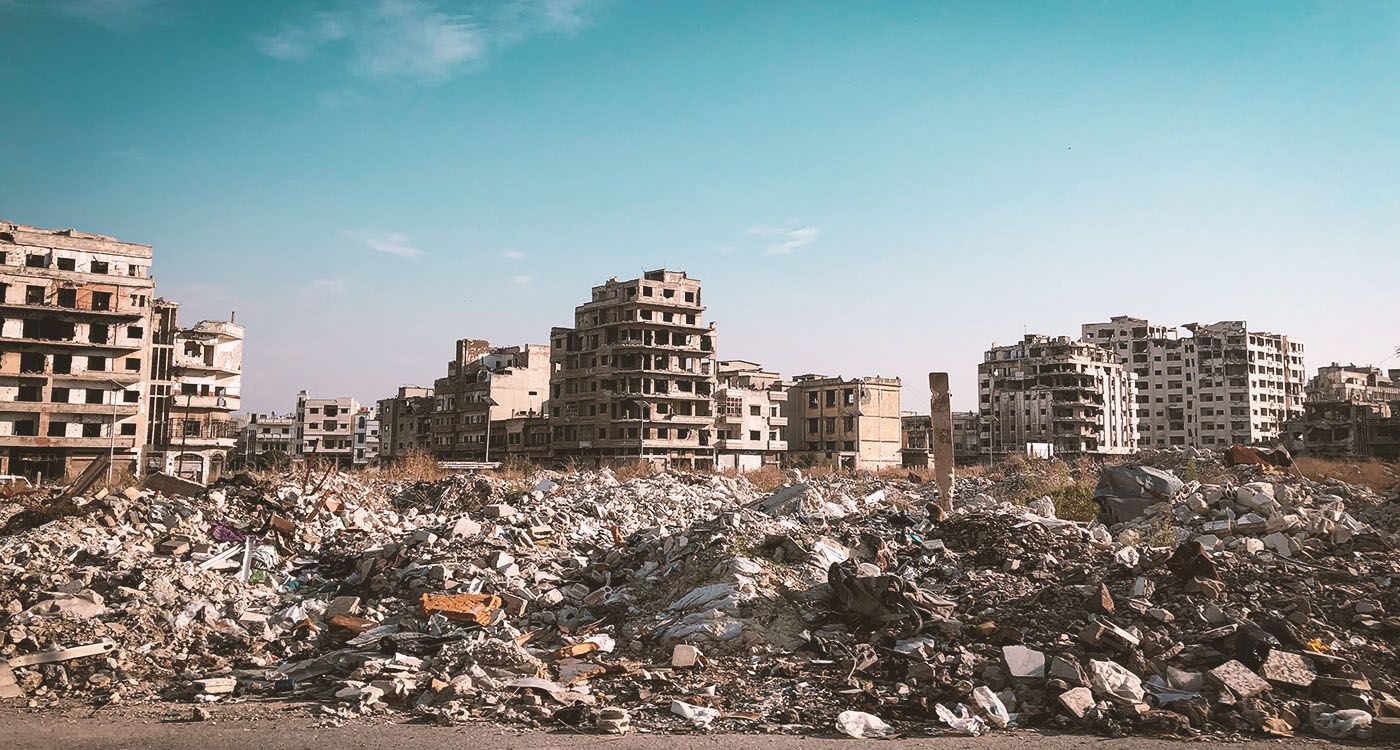
According to estimates from various UN and international sources, Syria's reconstruction could yield benefits for all. However, these prospects remain uncertain and far from guaranteed.
With the country still reeling from the war that followed the 2011 uprising, Syria's reconstruction is shaping up to be a lengthy and costly process, but it remains a critical undertaking.
In 2018, a United Nations official estimated the cost of this mega-project at $300 billion. By 2021, Russia's special envoy, Alexander Lavrentiev, revised the estimate to $800 billion, while the Arab League put the figure at $900 billion.
Despite the significance of these figures, they have failed to entice the Syrian diaspora to repatriate its capital or convince foreign investors — including those from neighboring Lebanon and Turkey — to commit to long-term investments.
Since the 2011 uprising, Syria has endured a period of systematic destruction, orchestrated by Bashar al-Assad's regime and driven by ruthless repression.
Caesar Act
With the fall of Assad’s regime on December 8, 2024, a new chapter is set to open, and the obstacles that have hindered the country's development should, theoretically, start to clear away.
Syria remains subject to the Caesar Syria Civilian Protection Act, a law enacted by the United States on June 19, 2020. This law imposes economic and trade sanctions on foreign entities involved in reconstruction activities or facilitating the Assad regime's acquisition of goods, services or technologies that support its military operations, as well as its aerospace and energy sectors.
Meanwhile, Syria is also subject to sanctions unanimously imposed by the European Union in February 2020. These sanctions target businessmen and economic entities accused of exploiting the war economy and diverting Syria's resources for the exclusive benefit of the regime.
Although Damascus was readmitted to the Arab League in May 2023, after being expelled in 2011, this return has had little to no economic impact.
For now, the Syrian situation remains defined by cautious anticipation, as the country awaits political stabilization, which would allow the adoption of laws and regulations to protect invested capital.
Trade and Services
While some argue that the benefits of reconstruction will take time to materialize, given the uncertainties surrounding Syria’s future, others foresee immediate economic benefits in the trade and services sectors. These areas could see rapid growth across much of Syria, boosting its markets.
Moreover, an economic recovery is expected with the return of many who had fled the 2011 war or the Assad regime, motivated by a deep connection to their homeland. This group includes entrepreneurs and investors with capital and extensive networks in the commercial and services sectors in Turkey.
However, the key issue that remains to be addressed is the low purchasing power of the Syrian population.




Comments